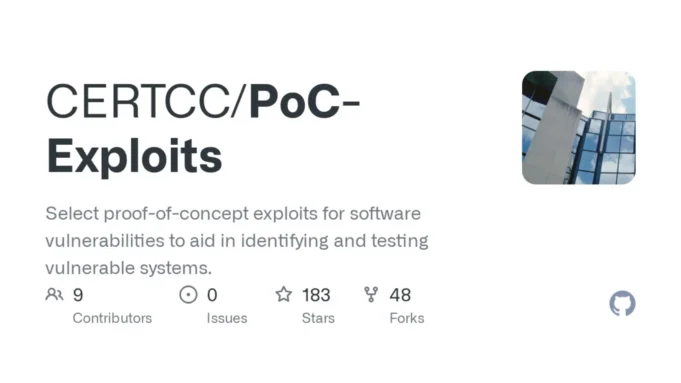A Proof of Concept (PoC) repository is a valuable tool in the cybersecurity landscape, designed to demonstrate the exploitation of specific vulnerabilities or Common Vulnerabilities and Exposures (CVEs).
These repositories serve as educational and research platforms for security professionals, enabling them to understand, test, and mitigate vulnerabilities in software, systems, or frameworks.
Functions Of PoC Repositories
- Educational Resource: PoC repositories help researchers and cybersecurity professionals comprehend the mechanics of vulnerabilities. By studying these demonstrations, they can better prepare defenses against potential attacks.
- Validation of Vulnerabilities: Security teams use PoCs to verify the existence and exploitability of vulnerabilities. This helps in assessing the severity of a vulnerability and prioritizing remediation efforts.
- Development of Mitigations: By replicating the exploit conditions in controlled environments, developers can create patches or updates to address the vulnerabilities effectively.
- Community Collaboration: PoC repositories foster collaboration among security researchers. Sharing findings allows for quicker identification and resolution of security flaws.
Key Components Of A PoC Repository
- CVE Demonstrations: These include detailed explanations and scripts showcasing how a specific CVE can be exploited.
- Exploit Scripts: Tools like Python or shell scripts are often included to automate the exploitation process for testing purposes.
- Categorization: Vulnerabilities are typically organized by CVE ID or type, making it easier for users to locate relevant information.
Risks Associated With PoC Repositories
While PoC repositories are indispensable for research purposes, they also carry risks:
- Malicious Code: Studies have shown that some public PoC repositories contain malware disguised as legitimate exploits.
- Misuse by Threat Actors: Publicly available PoCs can be weaponized by attackers before patches are widely applied.
To mitigate risks, users should:
- Verify the authenticity of PoCs from trusted sources.
- Use controlled environments for testing.
- Avoid downloading from suspicious repositories or links demanding payments.
In conclusion, PoC repositories play a critical role in advancing cybersecurity knowledge but must be approached with caution to prevent misuse or exposure to malicious code.












%20Works.jpg)




